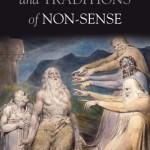We run our website the way we wished the whole internet worked: we provide high quality original content with no ads. We are funded solely by your direct support. Please consider supporting this project.
Is Hell Eternal Punishment?
The end of time, according to the Bible, is marked by hope, the hope that God’s will shall someday be done “on earth as it is in heaven.” The hope is that however terrible our present circumstances may be, before long they will all come to an end. Then creation will be what God always intended it to be.
However, Scripture’s otherwise magnificent vision of the end seems to be marred by one thing. According to traditional interpretations, this vision includes the understanding that innumerable angels and people will suffer excruciating pain for all eternity. Rebels will anguish in a lake of fie that will never be extinguished (Lk 16:22-24; Rev 14:10; 20:14-15) and in which they “will be tormented day and night, forever and ever” (Rev 20:10).
How are we consistently to conceive of a God who loves and died for every human who ever existed preserving their existence forever for no other purpose than perpetual torment? Further, how are we to understand the redeemed enjoying untainted bliss in heaven if alongside of this kingdom billions of people and fallen angels will be experiencing excruciating, unending anguish?
The problem is exceedingly difficult and extremely important. The traditional view that hell is eternal, conscious suffering is by far the most predominant view. However an increasing number of theologians and biblical scholars reject the traditional premise that the Bible teaches that those who reject God suffer eternally. They rather argue that Scripture teaches that those who reject God are ultimately annihilated.
In response to traditional interpretations, annihilationists maintain that the passages used to support the doctrine of eternal hell do not teach that hell is suffered eternally, only that its consequences are eternal. The damned suffer “eternal punishment” (Mt 25:46), “eternal judgment” (Heb 6:2) and “eternal destruction” (2 Thes 1:9) the same way the elect experience “eternal redemption” (Heb 9:12, cf 5:9). The elect do not undergo an eternal process of redemption. Their redemption is eternal in the sense that once the elect are redeemed, it is forever. Likewise, annihilationists teach, the damned do not undergo an eternal process of punishment or destruction, but once they are punished or destroyed, it is forever.
Annihilationists argue that Scripture’s references to an “unquenchable fire” and “undying worm” also refer to the finality of judgment, not its duration. The fire is unquenchable in the sense that one cannot hope to put it out before it consumes those thrown into it. Similarly, the worm is undying in the sense that there is no hope that it will be prevented from devouring the corpses of the condemned. Nevertheless, most annihilationists hold that there is a period of suffering for the damned prior to their annihilation, depending on the severity of their wickedness. In their minds, this accounts for passages noted above that seem to ascribe conscious suffering to those who are judged.
Finally, concerning the passages in Revelation that speak of torment being “day and night forever and ever,” annihilationists point out that this is a symbolic book whose apocalyptic images should not be taken literally. Indeed, even in the book of Isaiah, which is generally far less symbolic than Revelation, God’s judgment could be described in everlasting terms in a context where it could not possible be taken literally. Isaiah writes that the fire that will consume Edom will burn “night and day” and “shall not be quenched.” Its smoke “shall go up forever” and no one will pass through this land again “forever and ever” (Is 34:10). Obviously, this is hyperbolic, for the fire and smoke of Edom’s judgment is not still ascending today. If this is true of Isaiah, annihilationists argue, how much less inclined should we be to interpret similar expressions literally in the book of Revelation?
—Adapted from Satan and the Problem of Evil, pages 320-321, 327-329.
Category: Q&A
Tags: Annihilationism, Hell, Revelation, Warfare Worldview
Topics: End Times
Related Reading

God of Sense and Traditions of Non-Sense
As the title suggests, in his book, God’s Problem: How The Bible Fails to Answer Our Most Important Question – Why We Suffer, Bart Ehrman argues that the Bible has nothing compelling to say about the problem of evil. Well, I just put down a beautifully written four-hundred and fifty page book that compellingly argues…

How Should We Do Theology?
Delirious? via Compfight In yesterday’s post, we introduced a way of talking about theology with the use of concentric circles. At the center, is the revelational of Jesus—most keenly revealed on the cross. The next circle is dogma, which includes the central tenants of the historic-orthodox church. The next is what is called “doctrine.” And…

Theo Graff Podcast: Featuring Jessica Kelley
We have a special treat for you today. T. C. Moore is a great friend of ReKnew and he’s recently started a “Jesus-centered, hip hop flavored, geeky, theological, kingdom exploration” called the THEO GRAFF PODCAST. He’s published four podcasts so far and you’ll want to listen to them all when you get a chance, but we wanted…

“Natural” Evil? 7 Arguments Implicating Satan
Image by Jmos® via Flickr We believe that God is the Creator of nature, but nature simply does not seem to point to a God of love. Parasites, viruses, bacteria, diseases and cancer kill millions and torment millions more, humans and animals alike. Earthquakes, hurricanes, tsunamis, mudslides and volcanoes do the same. Theists have traditionally argued that…

Old Testament Support for the Warfare Worldview
Rebuking Hostile Waters Satan plays a minor role in the Old Testament relative to the New Testament. Instead, the warfare worldview in the Old Testament is expressed in terms of God’s conflict with hostile waters, cosmic monsters, and other gods.Like their Ancient Near Eastern neighbors, ancient Jews believed that the earth was founded upon and…

War in the Heavens!
What does spiritual warfare look like from the perspective of the physical world? Our friend David D. Flowers speculated on that question in a post he entitled Dark Matter vs Dark Energy: War in the Heavens. Referencing Greg’s Satan and the Problem of Evil, David considers the possibility that the interaction between dark matter and dark energy that…
